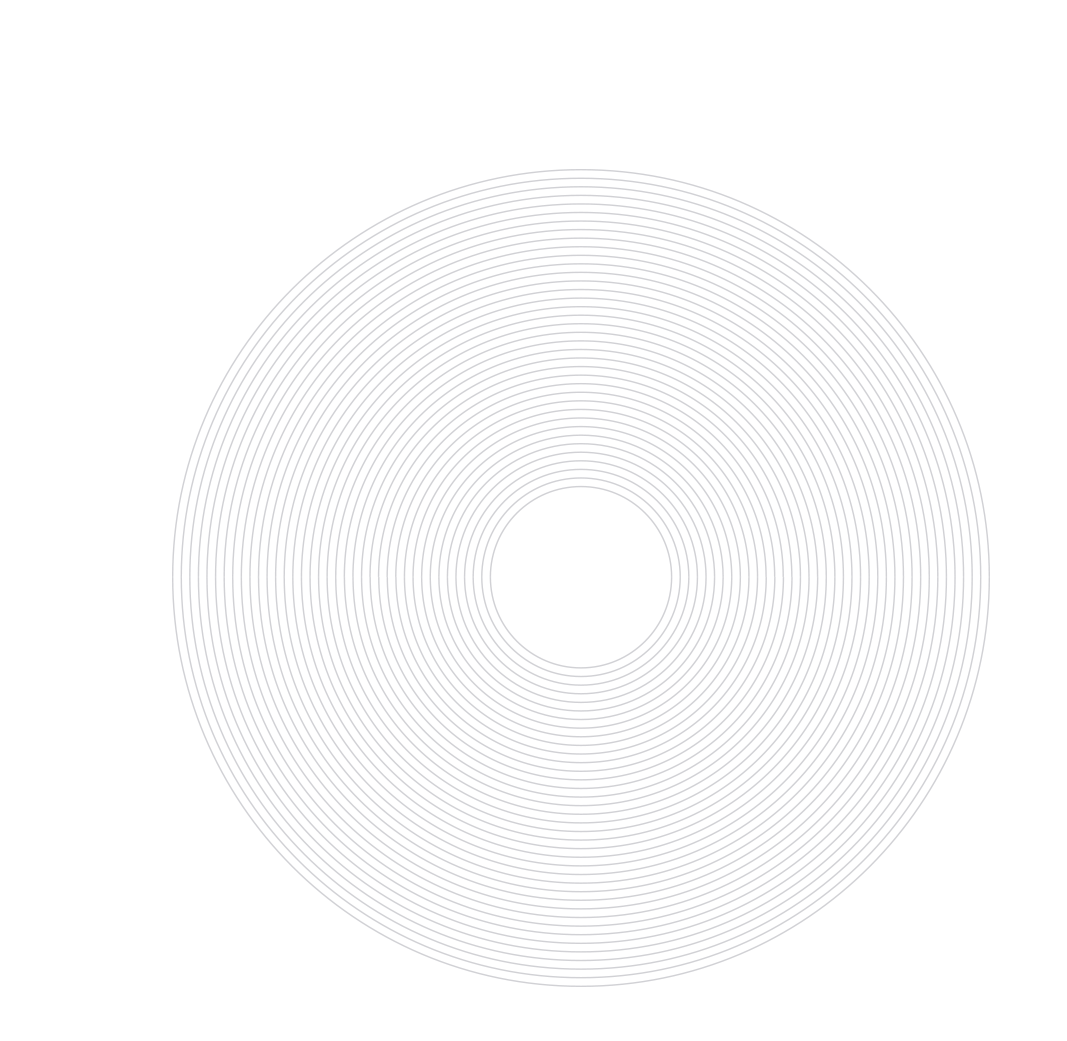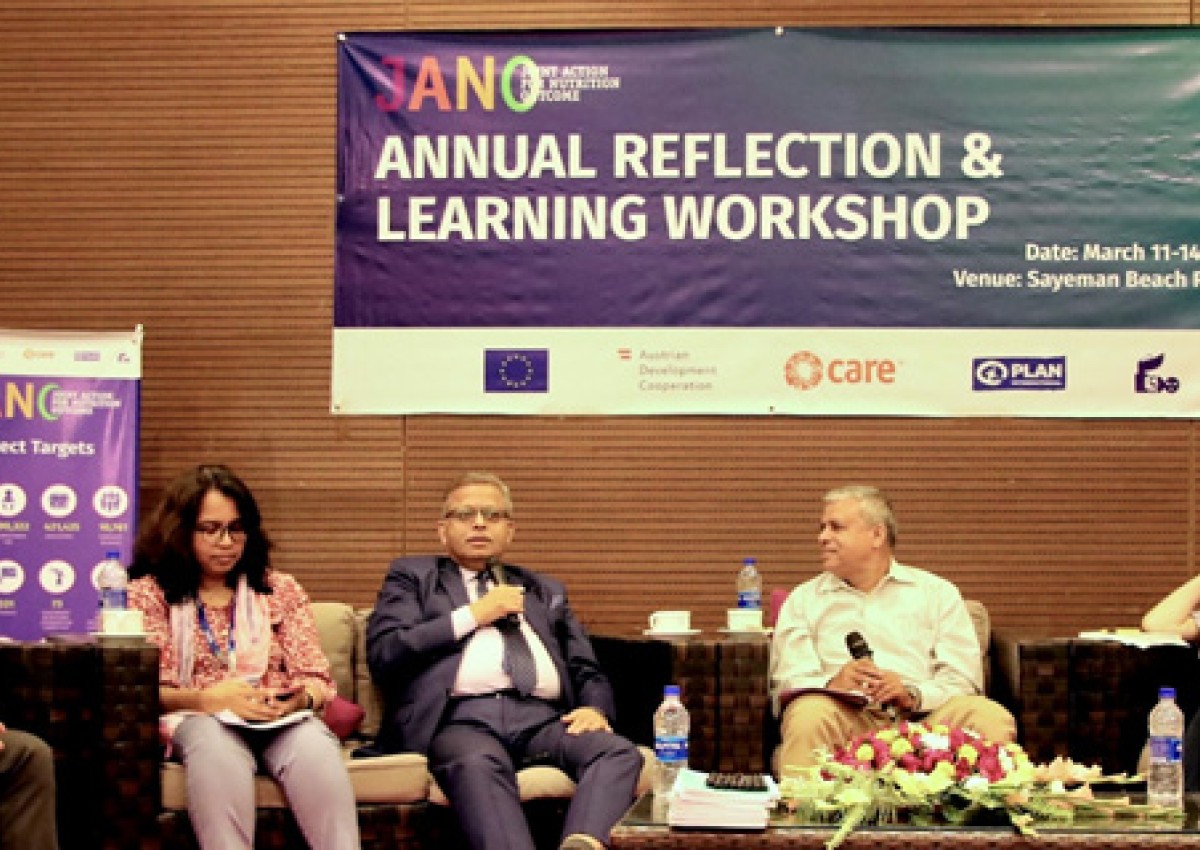





The esteemed panel members are discussing the reflections of the projects progress and way forward
A panel discussion titled “UDCC – an untapped platform, bridging the gaps between different sub-district level platforms and communities in implementing NPAN” was held at Cox’s Bazar on March 13, 2023, by Joint Action for Nutrition Outcome (JANO) project. JANO is a consortium project which is being implemented by CARE Bangladesh, Plan International Bangladesh, and Eco-Social Development Organization (ESDO). The project is funded by the European Union and co-funded by the Austrian Development Cooperation. JANO is working with the Government of Bangladesh (GoB) at the national, regional, and local levels to support the effective implementation of the National Plan of Action for Nutrition (NPAN).
The project has made an effective collaboration with the local government platforms. Among them, UDCC is the platform at the local level, mandated to ensure the effective implementation of the Nutrition Action Plan. As a Union level platform, UDCC is playing a vital role by linking the community needs with the government departments with the support from the Upazila and District level government platforms. The panel discussion was organized to share the project experience and validate the contribution of UDCC and also to find out what the national-level government and practitioners are thinking about this local-level untapped platform.
The speakers of the panel discussion were Dr. Mohammad Hasan Shahriar Kabir, Director General (DG) of Bangladesh National Nutrition Council (BNNC), Margherita Capalbi, Programme Manager – Agriculture and Rural Development, Food and Nutrition Security, Delegation of the European Union to Bangladesh, Kabita Bose, Country Director, Plan International Bangladesh, Dr. Ikhtiar Uddin Khandaker, Director-Health Program, CARE Bangladesh, Dr. Md Mizanur Rahman, Senior Team Leader, JANO project, CARE Bangladesh, and Dr. Mohammad Shahid-Uz-Zaman, Executive Director-ESDO.
Dr. Ikhtiar Uddin Khandaker moderated the panel discussion, which started off with a brief presentation by Md. Golam Rabbani, Manager, Multi-sectoral Governance, JANO project, CARE Bangladesh. He presented the project interventions around UDCC, how it is connecting the UDCC services with the community demands, and the project’s results to date. During the discussion session, Dr. Mohammad Hasan Shahriar Kabir said, “During the secretariat meeting, I had the opportunity to share the amazing work that JANO is doing at the Union Parishad level. I have visited many Union Parishads in my career. However, the one I saw where the JANO project was working is praiseworthy. I think the government will consider scaling up this initiative across the country”. He added, “We need to be more focused on the budget allocation by the local government if it is being spent rationally for nutrition. Specifically for people who are very hard to reach. The honorable Prime Minister of Bangladesh mandated to reach even the furthest corner of Bangladesh. I think there is no alternative than the bottom-up approach.”
EU delegation Margherita Capalbi said, “I am very proud of our nutrition portfolio, and JANO made a wonderful example of how a good collaboration with the government can help achieve the NPAN2 through multi-sector, multi-stakeholder, multi-level (3M) initiative.” She also added that policy advocacy initiatives should be taken to replicate this work countrywide.
Dr. Mohammad Shahid-Uz-Zaman said, "UDCC is creating an effective avenue to address the community demands, and they are using their plan to address those community needs. It is a unique idea to carry forward grass root voice and create spaces to connect upper-level government structures such as UNCC and create a strong service flow.”
Kabita Bose said that “The structure of Union is around 266 years old, and rural development is not possible without the active role of Union Parishad. For inclusive long-term sustainable nutrition development, there is no alternative to UDCC.”
Dr. Md Mizanur Rahman said, "JANO proved that the 4C approach for UDCC is now working. The coordination among the government department has increased, and healthy competition is happening. The way different government departments support each other in achieving nutrition agendas is remarkable. This happened after revitalizing the UDCCs, and the connection between UDCC and communities is now visible.” He also emphasized that this needs to be scaled up countrywide to improve the country's overall status. Dr. Md. Akhter Imam, Deputy Director, BNNC, added, "We have seen very vibrant initiatives and activities in the UDCC, and we can uptake the result from the JANO project and replicate those elsewhere.”
© Copyright 2026 CARE Bangladesh. Powered By Bangladesh Online